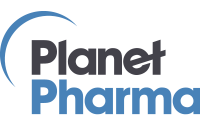As recruiters, we talk with candidates daily about the frustrations they experience during their job searches. One of the biggest complaints? “Why don’t recruiters respond when I call or email?” While we always strive to be responsive, the volume of candidates reaching out to us can be overwhelming. And, even one little thing can move you off the call back pile. Consider these reasons and learn how to improve your odds for getting a response.
An Unpolished Resume
Your resume is the first impression hiring managers and recruiters have of you. In addition to showcasing your background, education and experience, your resume can demonstrate your attention to detail, professionalism and even your judgment. If you present a resume with spelling errors, typos and missing information, or if the format is difficult to follow, it may prevent a hiring manager from wanting to learn more about you. Be sure to have someone proofread your resume and look at it for format and content. Check to see the tenses match and the overall presentation is clear and inviting. A well-executed resume along with the right background and experience should encourage recruiters to respond.
Gaps in Your Work History
An extended time of unemployment can make it difficult for a recruiter to place you, even if your background and skills are excellent. And, fair or not, managers typically prefer hiring professionals who are employed. Sometimes being out of work is unavoidable, so what can you do to avoid gaps in your resume? Consider contract work. It’s an effective way to keep yourself in the game, get exposure to new and different professional experiences, retain your skills and make new contacts. Include relevant contracting roles on your resume; if all of your other attributes are relevant and excellent, you should get that coveted return phone call.
Missing Skills
Many hiring managers are very specific with the degrees, skills and certifications they want from their new employees. You may have what is being requested, but it could be difficult to find, or not even listed on your resume. Ensure your talents are clearly noted on your resume. Include a technical or scientific summary, and, if job-specific, repeat and highlight this information in your cover letter. For example, what software do you use? Do you have hands-on lab experience, and if so, in what type of environment? Have you reported on data from a clinical study? If the role requires a particular skill, make sure it stands out on your resume.
Inconsistencies in Your Background
With multiple career websites like LinkedIn, Monster and Careerbuilder, consistency is critical. If your LinkedIn profile has employment information that differs from your resume, it will create misgiving in the mind of any recruiter, and could be the reason you aren’t called back. Many staffing agencies use software to track resume information from the first time you register with them. If you submitted a resume in 2010 and again in 2014 with conflicting information, it may come across as fabricated and your candidacy may be dismissed.
There is Nothing to Report
If a recruiter called and hasn’t reached out again after an initial conversation, it’s OK to follow up. We recommend calling every few weeks at most. Good recruiters rarely have a scenario where they overlook a qualified candidate for a role or forget to call a candidate with important news. If there is a fit, a next step or a question, we will reach out. If not, we may not have a chance in our day to call back or check in. And, while some candidate follow-up is expected, overly aggressive candidates can be off-putting to recruiters, and their tactics may get them eliminated from contention.
Improve your chances of getting recruiters to respond by creating a clean resume, managing unemployment gaps, showcasing relevant skills and experience, being consistent with your online profiles and being professional in your follow-up. If you do all this and are still not getting a response you, it may be time to look for a new recruiter or move onto a new opportunity.
Photo credit: Canva
How to Create an Effective Pharmaceutical Resume
Your resume is often the first impression you make on a prospective employer in the pharmaceutical industry, so it’s essential to ensure it effectively showcases your skills, experience, and qualifications. Here are some tips for creating an effective pharmaceutical resume that stands out from the competition: Tailor Your Resume to the Job: Customize your resume…
Planet Pharma EU’s October MVP: Mona Azhari
We’re highlighting some of the amazing people who make up our Planet Pharma. Today, let’s get to know Mona Azhari with our Planet Pharma EU team. Name: Mona Azhari Job Title: Recruitment Team Lead How does it feel to be recognised by your colleagues and what was your secret to success this month?…
Planet Pharma EU’s September MVP: Alastair Aitken
We’re highlighting some of the amazing people who make up our Planet Pharma. Today, let’s get to know Alastair Aitken with our Planet Pharma EU team. Name: Alastair Aitken Job Title: Principal Recruiter How does it feel to be recognised by your colleagues and what was your secret to success this month? Feels…



